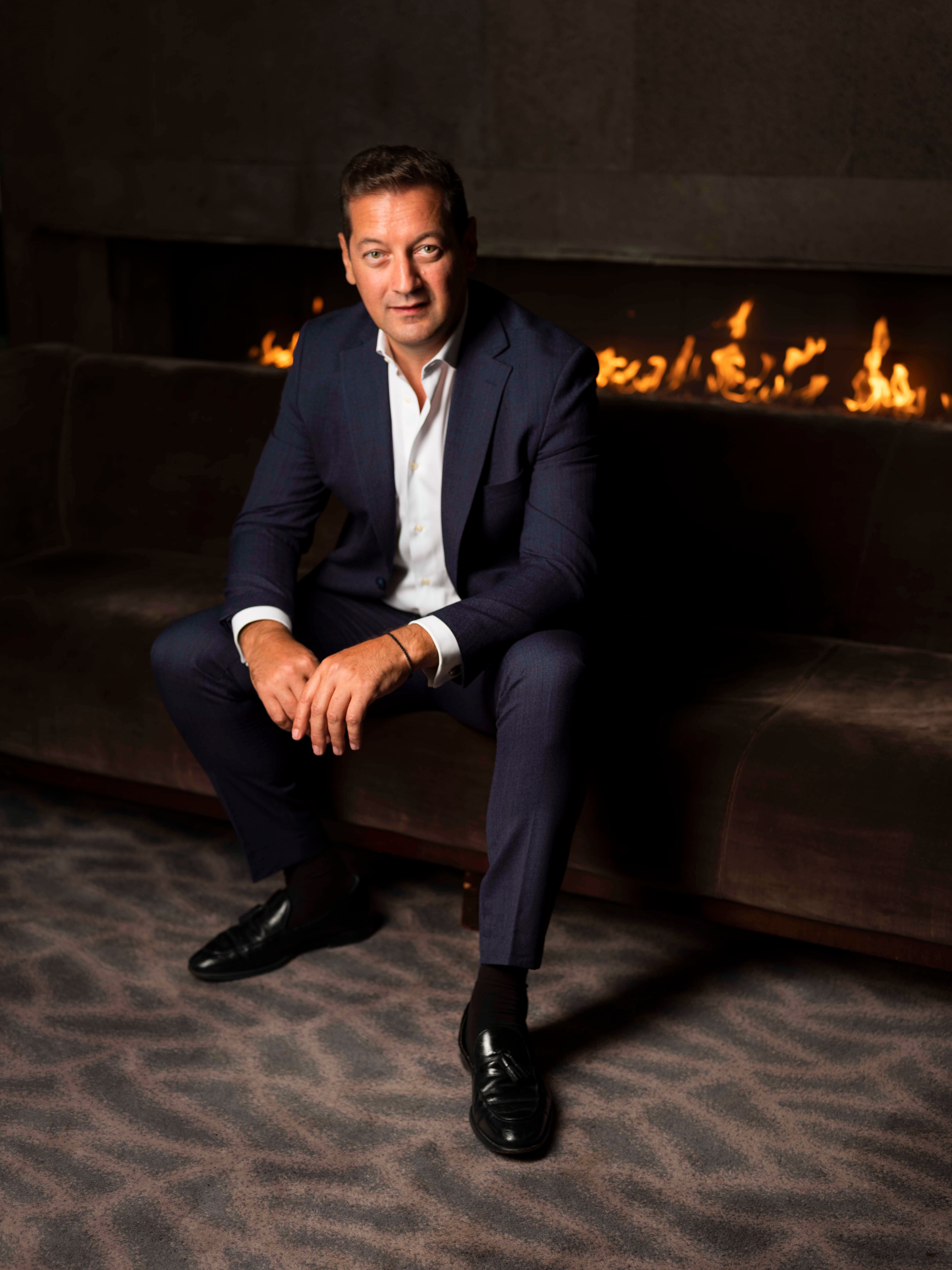
Antoine Pravin, Regional Director of Food & Drinks (F&D), Arabian Peninsula for Hilton

1. Please introduce yourself and your current professional role.
While working globally as a French native, I have immersed myself in many cultures. This has taught me that the greatest collaborations all emerge from a variety of cultures, viewpoints, and experiences.
My ambition to work in the hospitality sector was driven by both my passion for the world of pastry and a visit to a brand-new 800-room hotel project which my father was in charge of building in Prague, in the early 90’s (coincidently or not, the hotel became the Hilton Prague soon after its opening).
Twenty plus years later, in my current role as Regional Director of Food & Drinks (F&D), Arabian Peninsula for Hilton, I support the implementation of our EMEA F&D strategy across over 50 properties spread between the UAE, Qatar, Bahrain, Kuwait, and Oman. My role is to foster close collaboration with our hotel General Managers, F&D, and culinary leaders to maximize performance, deliver great food and drink experiences to our guests, and support the development of our team members as future hospitality leaders.
2. You have extensive experience across the industry and several countries, what’s important for developing a successful career in the hospitality sector?
Cultivating knowledge is imperative to growing a career. It is also important to find a fine balance between adapting to an organization’s culture and embracing its ambitions, constantly look to add value (make no room for complacency), push boundaries, be kind to all people, and, very importantly, remain curious in all circumstances. In addition to this, a bit of luck along the way is always welcome!
Embracing regular changes of roles and business environments is I think essential to fast-track learning (growing a business, improving efficiencies, finding solutions quickly, adapting to a challenging environment), and ultimately benefiting from great career opportunities. Taking calculated risks and choosing a company, team and role that aligns with your values will also carry you further in the industry. Hospitality offers you the chance to travel and see the world so try to embrace these opportunities.
3. How does hospitality and foodservice in the MENA region compare to the rest of the world?
One of our key strengths in this region is that it is a melting pot with access to a diverse and a vast pool of individuals who are eager to learn and grow while in an environment that provides opportunities.
Supported by a robust economy and global SME hubs, the region has seen a surge of new restaurant players entering the market, be it on the fast-casual, casual or lifestyle segments. This is being supported by government initiatives to drive gastronomy and table tourism. This dynamism really fosters innovation and drives the rejuvenation of some aging F&D venues. These developments play a key role in supporting leisure and business tourism and making the local dining scene a fantastic and very diverse playground for residents.

4. What are the biggest F&B trends you’re seeing this year and what do you anticipate will dominate 2025?
Globally, experiential dining is becoming a mega trend. Within this, Eatertainment is certainly the biggest growing trend. Delivering great dining experiences is no longer enough; our guests are seeking extra fun along the way. Open kitchen, table-side theatric, gaming and entertainment are must-to-have elements of any cool dining venue.
Storytelling and partnerships remain a key factor in our guests' desire to spend their hard-earned money. Engaging in collaborations from the farm world (e.g., Fresh on Table, Qadco), the artisan world (e.g., a gelato artisan, a chef patron like Jose Pizarro we are working with at the Conrad Abu Dhabi Etihad Towers), or the boutique industry world (e.g., bespoke porcelain maker) can truly help set us apart.
By effectively using social media (Instagram, TikTok, Facebook), we can amplify these trends, create some buzz, and draw in customers eager to experience the latest in food & drinks.
5. How does Hilton anticipate and leverage F&B trends to cater to changing consumer demand?
Consumers are voting with their feet, choosing purpose-driven agenda such as diversity, flexitarian options, and low-alcoholic drink options, ethical local sourcing, participation in fair-trade markets, and greater value for money. These are precisely the elements we have been and will continue to amplify: our #HiltonShef program aims to remove obstacles women may encounter in their culinary careers; our Hilton Green Ramadan and Hilton Green Breakfast initiatives help reduce food waste; our ESG efforts enables us to widely deploy sustainable drinking water solutions and drastically reduce the need for single-use bottles; and our long-standing collaboration with Fresh on Table in the UAE helps us source hundreds of tons of locally-produced food each year.
Beyond our goal to remain industry leaders thought these initiatives, we encourage the entire industry to follow suit, to do the right thing for future generations and our planet. There is no time to waste.
6. How does Hilton embrace F&B innovation across its regional portfolio?
Our F&D Brand team develops bespoke restaurant, bar and café concepts that matches the current dining trends. I can think of Kimpo and Anása at the Conrad Dubai, Mulberry Tavern at Hilton Doha The Pearl or Republic at Doubletree by Hilton Dubai Business Bay for instance. These and many more venues can be discovered on our #tasteofhilton Instagram handle and these venues own handles.
Crafting and providing the hotel teams with bespoke tools and guides that focus on specific aspects of our business makes the difference between good and great. Additionally, giving all our team members the opportunity to shine by participating in internal competitions (Flavour & Flair, Pina Colada competition) has proven to be very beneficial not only for great taste but more so team engagement.
We do also collaborate with world-renowned brands and restaurateurs to equip our hotels with highly appealing lifestyle restaurants such as Sushi Samba at the Waldorf Astoria Lusail and at the Conrad Bahrain Financial Harbour, Roka at the Waldorf Astoria Kuwait, Muru at Waldorf Astoria Doha West Bay, with many more in the pipeline.
7. How has technology changed the hospitality sector? Are there some notable tech solutions that Hilton has implemented?
Technology has made our F&D venues far more visible and accessible to the wide public. To maximize the benefits technology brings to the business, our teams attend regular workshops.
At Hilton, we selected and keep deploying some of the world’s leading F&D technologies, supported by our unique organizational culture. Such technologies help us manage our business more efficiently and therefore gain in competitiveness. Some of the solutions we use are WI-Q, an e-commerce platform enabling guests to order their meals and drinks from their smartphone, Sevenrooms for online restaurant booking, table management and CRM, Winnow, an AI-capable food-waste management platform, KitchenCut as a menu engineering tool and Navitas Safety, a fully digital HACCP system to support the operators (and limit the need for printing). Few additional systems, designed to make the communication between our guests and our F&D venues ultra seamless, are currently under trial.

8. What is the importance of an event like GulfHost in the hospitality sector?
Attending Gulfhost is always a great opportunity to re-connect and engage with peers and forge relationships with new ones. The opportunity to learn about emerging technologies, cutting edge products, and innovative systems is like a gift which used wisely can improve and impact our businesses for the better. F&D never stands still so nor should we!
)
)
)
)